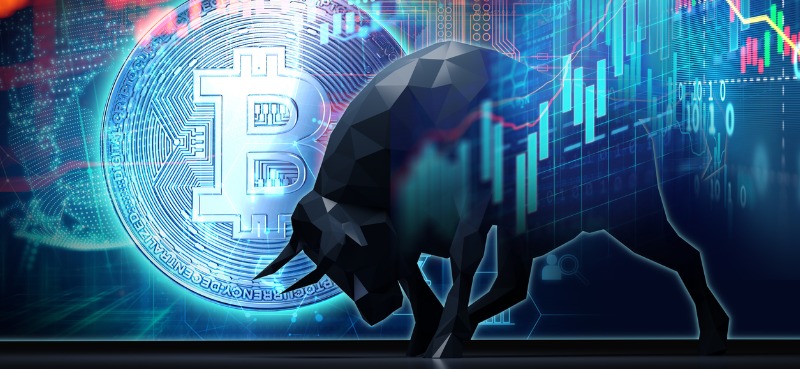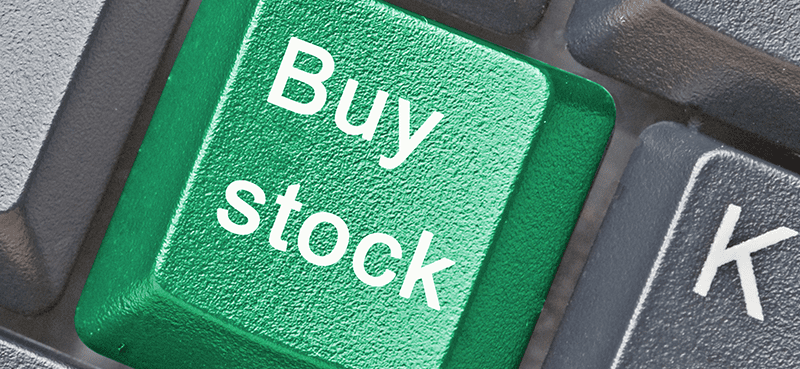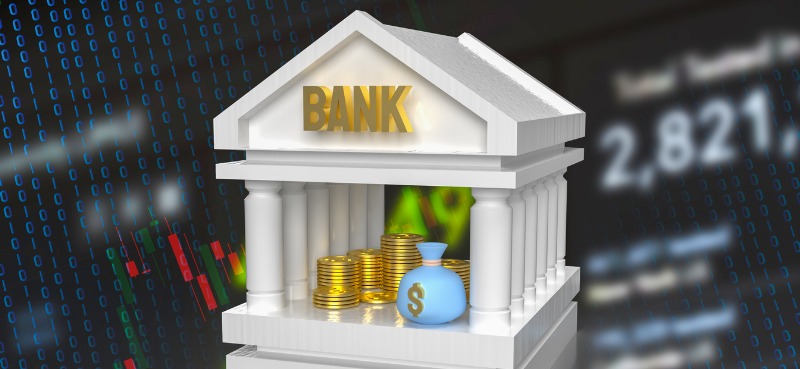As CEO of Elevated Returns, Stephane De Baets is a cross-sector pioneer. The firm led the first security token offering in the hospitality industry.
Today, Stephane explains the enormous potential for security tokens going forward—including the benefits for both investors and businesses. He breaks down some recent wins for the sector… and explains why this could be a multitrillion-dollar market in the years to come. [27:57]
Then, Daniel and I share some topics that drive us crazy—like Nasdaq’s gender policing… and people who use the word “likewise.”
We also discuss the excitement around bitcoin, gold, and the potential blockbuster Airbnb IPO…
Wall Street Unplugged | 750
This digital market will be 10x the size of bitcoin
Announcer: Wall Street Unplugged looks beyond the regular headlines heard on mainstream financial media, to bring you unscripted interviews and breaking commentary direct from Wall Street, right to you on Main Street.
Frank Curzio: How’s it going out there? It’s December 2nd. I’m Frank Curzio, host of the Wall Street Unplugged Podcast, where I break down the headlines and tell you what’s really moving these markets. So, I hope all of you had a wonderful Thanksgiving without your families, your brothers, your sisters, or having anyone allowed to come to your home, since this was mandated by politicians, right? Governors, mayors, they were adamant about this too. They were, “You’d better not have big groups hang out on Thanksgiving. Forget about Thanksgiving.” It can’t be a real Thanksgiving dinner, it can’t be you’re spending time with your family, you’ve got to be worried about coronavirus.
Frank Curzio: So, they were getting on TV like crazy, like crazy, scaring the crap out of everybody. “We need to lock down. You have to stay home. Don’t go near anyone.” All right. Fair enough. If that’s what you really believe, that’s cool. All right. Everybody listened. But of course, it doesn’t apply to the mayors and the governors themselves. We have Michael Hancock, Mayor of Denver, said that everyone in his lovely city should only do virtual gatherings or in-person dinners for Thanksgiving. Then what did he do? He jumped on a plane to Mississippi, spent time with his family, wife, and daughter. Mississippi. “Holy, guy, with the Mississippi, he’s infected.”
Frank Curzio: You would think as a politician, mayor, governor, you’re exposed to more people than anyone, right? He just said, “No, I’m going to go there,” and then he got caught. And then what did he do? He did what everyone does when they get caught. He apologized publicly. “My fault, my bad.” In the meantime, you have people who were against it saying, “Stone the guy, he’s crazy!” He spent Thanksgiving with his mom and his daughter, and we’re ripping him apart. But more important is, we’re looking at our politicians, and of course, when they’re wrong, they apologize, especially when they’re caught red-handed, because that’s what everyone does these days, because everyone’s so sensitive. No matter what they say, they have to apologize for it now.
Frank Curzio: I don’t get that. Actually, I do get it a little bit because it’s not really that person, it’s… They’re making a lot of money on a network. I think we saw Kirk Herbstreit, who does college football, apologize, because Michigan wasn’t playing Ohio State, and the coronavirus, he had to come out and apologize. Again, you want to continue to have a job, you’ve got to do that. But, everyone’s so sensitive. Why are you so sensitive today? You can’t say anything without offending somebody. You really can’t be yourself then, right?
Frank Curzio: Getting back to Hancock, and getting back to Pelosi, or Governor Newsom in California, these are people that scare the crap out of you, and that’s fine if you truly believe that. Even though we have a 99.5% survival rate on COVID, you say anything positive about COVID, people want to rip you apart. I did it this week on Twitter. You guys should go to my Twitter, @FrankCurzio. You’ll see a different Frank Curzio because, let’s face it, there’s a lot of assholes on Twitter, on social media. They just say whatever they want, have agendas, they’re trolls and everything, and I give it to them and have some fun with it. But, all I posted on COVID was that, the death rate of the infected fell below 2%, its lowest level since the pandemic began. That’s all I said. I didn’t give an opinion about it. It’s a fact.
Frank Curzio: I had two different people commenting, one of them who’s a good guy, say something sarcastic. “Oh wow. So we don’t have to worry about these people, the rest of the people, dying or whatever.” Right away, I called them out. I said, “Why the F would you mock this? This is a fact that I’m saying. This is good news for every one that the death rate is going lower, but you’re pissed off about that? I really don’t get that.”
Frank Curzio: But, we have these politicians coming on and believe me, this is going to get to a very important point that’s probably going to make you a lot of money in a second, we have our politicians come on TV and just yell at us and say, “Listen, you have to stay… This is what you have to do.” Then, we have Pelosis, Newsoms, Hancocks, I can keep going. I can name 50 different examples of these people scaring the crap out of everyone, and then presenting themselves like they care about you. “We care about you. We don’t want you to die.” Then what do they do? They do the exact opposite of what they’re preaching.
Frank Curzio: Think about that for a minute. So it’s one thing… I never had a problem with Bernie Sanders, because he truly believes socialism is the best way for our country. Hopefully, most of you don’t believe that, but he truly believes it, and I respect that. That’s his opinion, and I respect your opinion. These are people that are saying one thing and doing the exact opposite. This is much different. If you’re looking at these politicians, and they’re yelling at you to stay home, and then they’re not, they’re having dinners without their masks on, they’re mandating, “You’ve got to wear a mask.” Yelling at everybody, ripping everybody apart who doesn’t wear a mask, and then you’re not doing that.
Frank Curzio: What is that to be said about our politicians on both sides? “Oh, they say that because they care about us?” No. You really think they care about us? Do you really think our politicians care? No, they care about your vote. That’s the only thing they care about. They don’t care about you personally. “Oh, stay safe.” No. Are you out of your mind? I think we all know that by now. It’s just a funny world that we live in, where people actually trust politicians, Democrats or Republicans, and Independents.
Frank Curzio: That goes right into the heart of one of the biggest trends we’re seeing in the market right now. Yes, stocks are going higher and technology’s rebounding, and we’re seeing great things at the market, manufacturing activities bouncing back, we have the vaccine, go on and on, positives, positives, positives. The biggest trend by far right now is Bitcoin. You want proof? Just go on CNBC. They have a little ticker on the bottom now for Bitcoin. They always do that when things are at all-time highs.
Frank Curzio: They haven’t had Bitcoin on since, I think, 2018, mid-2018, when the market really crashed. Was it 20,000 last time, 19,000, and then fell to 3000 or 4000, around there? You didn’t see it there anymore, now it’s there. Everybody’s talking about it. But, if we look at the concept and think about what I just told you about the politicians, saying one thing, doing another, forcing us to do things that they don’t really believe in, so Bitcoin is now trading… It hits its all-time high, not too sure where it is today. Based on when you’re listening to this, it could be 17,000 or 23,000, but it did go over 20,000, a new all-time high.
Frank Curzio: But if you look at the concept of Bitcoin and when it was created, it was created in 2008, not a coincidence. That was right in the middle of the credit crisis, where greedy bank executives almost destroyed our entire financial system. They used massive amounts of leverage from other people’s money to make an insane amount of money for themselves knowing that, “Hey, if we get caught, it’s all right, we made a fortune.” When you look at Blodgett, Blodgett got fined during the tech bubble. But, do you know how much money that guy made? He got fined. He got thrown out of the industry for a little while. You know how many people would take that deal? He probably made like 50 to $100 million. Is that really a punishment?
Frank Curzio: Speaking of punishments, none of these guys, none of these executives got punished. All this craziness went unchecked by our politicians, since they were making a fortune from the lobbyists, who were representing the largest banks and financial institutions in the world. They were okay with it at the time. Then when the shit hit the fan, the government, or you and me, our tax dollars actually, bailed them out, made them 100%, “Oh, everything’s okay now.” Not one of these executives were held responsible or did time in jail. I think there’s maybe one person out of everybody. Are you kidding me? With the amount of risk they took?
Frank Curzio: They took it, and they did it behind everybody’s back. Nobody knew about it, nobody knew. Even the Fed had no idea. AIG was insuring all this until way into the credit crisis. No idea. Paulson was like, “Yeah, yeah, AIG, I’m on it.” “Well, what’s going on with AIG?” “They’re just insuring every single one of these CEOs that are done.” “How much is that?” “Probably, trillions and trillions and trillions.” “Would that be worthless?” “Oh, we should look at AIG a little bit closer.” It’s crazy.
Frank Curzio: So now, what do we have after that? The banks are bigger than they ever were. Our government made an absolute fortune during the credit crisis, absolute fortune, by AIG, Fannie and Freddie investing in the banks preferred. They were buying this stuff at less than 10 cents on the dollar, super depressed prices. What do our politicians do? They used that bill, that TARP bill, to add tons of pork in it for themselves, like for wooden arrows. I covered this, like, two weeks ago. What did that do for us? Jobs are lost, it was to destroy the entire financial system. And your penalty is well, nothing. Hey, you made a fortune, good for you. Now, you’re going to make even more money, if you’re still in that industry.
Frank Curzio: You wonder why people are pissed, and they don’t believe in the system, and people hate Wall Street: That’s it. That’s why I do this podcast. That’s why I have Curzio Research, to get you away from the bullshit. There’s great people on Wall Street, there’s great firms on Wall Street. It’s also an industry that you could easily do the wrong thing and make a lot of money across the board, even the financial newsletter business. It’s crazy. You go unchecked, and there’s no punishment. It’s a slap on the wrist.
Frank Curzio: But the lack of trust in the system, I’m talking about the whole system, whether it’s voting with this past election, I mean, there’s a lot of statistical anomalies. Biden saw fewer votes in every major Democratic county compared to Obama, every single one, every single one, except the six battleground states that all stopped counting votes at 10:30, and then started recounting where hundreds of thousands were dumped at 3:30 AM. Why did that happen? Regardless, if you’re a Democrat saying, “Hey, you lost, that’s it.” You have half of America that’s asking that question and saying, “Hey, could we just have… Why did that happen? Why were Republicans not allowed to be in the room when you were counting this stuff? Why did you stop counting at 10:30?”
Frank Curzio: These questions have to be answered. If you really want to unite the country, which both sides, we’re just tearing each other apart. Again, if you like Trump, you’re racist, you hate women, and all this stuff, but afterwards, “Hey, we’ve got to get the country together guys. We’ve got to come together. We’re all Americans.” Really? But, it’s the system. So, whether it’s the voting system, whether it’s Wall Street, or whether it’s our politicians telling us that we need to wear a mask at all times, at all times, you’re going to spend Thanksgiving alone, do virtual Thanksgiving, when they do the exact opposite, this favors Bitcoin and also favors gold.
Frank Curzio: These trends are never going away. They get bigger and bigger and bigger. When you don’t trust a system, you want something that you could trust. That’s Bitcoin. We see central banks spending money like crazy, like they did during TARP. Now what’s going on? Why is this such a debate right now in a stimulus when we know that we need it? Why is there such a debate for an infrastructure bill, when both sides, Hillary and Trump, both ran on a trillion dollar infrastructure bill? Why don’t we get it done? It’s because of all the crap that’s included in it. It’s because all these states, and what they’ve been doing, and how much debt they’re in, how much spending they’re in, they want to become whole. They want to make their money back. They want to get paid.
Frank Curzio: This is the stuff that… They’re not arguing about the stimulus. This is what they’re arguing about, everything else that’s got to go in there that you’re really not going to see, unless you read the 700, 800 page report. That’s what they’re fighting about.
Frank Curzio: What does that do for sentiment? Well, you don’t trust the system. If you’re a Democrat, think back to Hillary, where Hillary thought she won, and you’re like, “There’s no way Trump won,” or whatever. If you really believe… We have to have a system that everybody believes in. If it doesn’t and we don’t, that creates uncertainty. But now, we have central banks that, no matter what happens, they’re going to bail us out. TARP was incredible. We’ve never seen anything… It was 700 billion, why not be 480 billion TARP, to fix the whole financial system? That money was astronomical. People were like, “Oh, but it’s…” $6.5 trillion guys, $6.5 trillion the government printed and gave direct.
Frank Curzio: This isn’t going to banks to put on their balance sheets to stabilize them, so people start spending again and feel comfortable that the banks have got a round of money, they can go to an ATM and take out the money. No, no, no, no, no, no. This is going… This is a check being handed to people, for a disease that’s probably going to die down incredibly in about a month and a half, not a month and a half, about six months or so. Everyone’s going to have access to the vaccine, maybe nine months it takes. There will be people that take it and don’t take it, it won’t go there, whatever.
Frank Curzio: But when you look at all the uncertainty taking place and the people that don’t trust the system, and we don’t trust a system that is good for Bitcoin and gold, it’s great for them. I want to start with gold here because, Goldman had an interesting report. Let me break this down really quick for you guys. So, we have our Curzio Research YouTube page, we tape everything now, so this podcast you could watch as we’re taping it. I’m going to bring in Daniel in a little while, I’ve got a great guest coming in, it’s on video. Also, it allows me to share my screen. So, I’m going to explain it to you. So if you’re listening to this on iTunes, it’s cool. I get it. People like to listen to it when they’re jogging, running. But, definitely subscribe to Curzio Research YouTube page, absolutely for free. You’re going to see the videos, you’re going to see everything, and you’re going to see the sites that they use.
Frank Curzio: Goldman came out with a pretty incredible report. I’m going to share my screen here, but I’ve got to make sure I break it down, that everybody understands. They came out and said that copper is going 30% higher, did a great job. This is December 1st, and I read the whole report, it was a fantastic report. It really was. It was well done, saying that, going into 2021, the copper market just faced the tightest market conditions in a decade, owing to a substantial deficit. This period will be framed by robust cyclical and policy-driven demand environment, set against already low inventories. A fast approaching peak of base case mine supply, and a falling dollar, will lead to significantly higher copper prices needed to help balance the structurally tight fundamental backdrop.
Frank Curzio: If you look at the charts here, in copper, it’s amazing how much copper has risen and no one’s talking about it. So copper in 2010, it hit $4. We’re looking at in 2016, it fell to $2. It’s been pretty much up and down. Then, during the recent pandemic, it fell about $2 again to 10. Six months ago, it was about 240, 250. Now, it’s at 350. It’s at 350, 347. Why is that a big deal? Well, when we bring it back to the biggest companies in the world, the Barricks, the producers, the Barricks, you have a Newmont Mining as well, you have all these companies that are producing like crazy. Their average cost to produce is under $1,000 for gold. It’s incredible when you think about it.
Frank Curzio: Where are prices now? When you look at prices, prices are what? 1800-1900. These guys were making money. Again, their production costs all in are less than $1,000. I want to bring something up for you here because, when you see Barrick’s statement here, and I’m just going to bring it up, so I have their presentation up. Reducing their cash and their debt by 71%, operating cashflow, 1.9 billion. These are gold companies guys, record-free cash flow of more than 1.3 billion. This is Barrick. Then, when you look at the average selling price, it’s going to be, for the first time in months, it’s under 1,000, and they’re producing 3.5 million ounces of gold, which is incredible.
Frank Curzio: But, copper is a by-product of gold, or gold above product of copper, whatever you want. But when you produce gold, you’re going to get copper, lead, zinc. It’s almost like if you’re drilling a hole for natural gas or oil, you’re going to get natural gas, or vice versa. So, you have all this copper, and what these companies do, is they all include everything, and they call it GEO, Gold Equivalent Ounces. This way, it’s one number everybody can understand, and it’s cool.
Frank Curzio: No one’s talking about copper. Now, if you look at Newmont, 20% of their production is from copper. If you look at Barrick, they’re expected to produce… This is just nine months. I’ll bring this back up, nine months, right here, is 338. It’s going to be over 400 million pounds of copper. They’re going to produce 400 million pounds of copper. Well, whop a dollar in a month and a half in prices. What does that mean? That’s 400 million extra dollars. Nobody’s talking about, though, these gold companies. Not to mention, do you really think gold is going higher or lower? I think it’s going to go a lot higher over the next few years as central banks continue to spend like crazy, then we can free our currencies. That’s not going away anytime soon.
Frank Curzio: So, you look at these gold producers, they’re trading at a market multiple 18, 19 times forward earnings. Actually, that’s below a market multiple, because they’re trading over 21 times forward earnings now in the S&P 500. Yet, they’re growing at 70, 80, 90%, they’re growing these earnings. That’s compared to what? 5%, 4% is what’s expected at the end of this year, earnings growing 4%? We’re looking at 15, 20X greater. They’re growing faster.
Frank Curzio: If you take out the Barricks and the Newmonts, if you just took them out and did a screen, you would think these are technology companies with their margins. Their mines, they’re profitable. You’re looking at 12, 13, 100, these guys are making money. It’s 1900. Now, you’re throwing in copper, which if you look, and I looked at all these presentations, they’re not even talking about copper. Newmont doesn’t even separate copper. They include it in other, everything other than gold, and most of that’s copper.
Frank Curzio: But if you want a boom to companies, if you want to see these balance, if you want to see these guys really take off, and these earnings are going to explode, their margins are going to get greater if gold goes higher. These guys are in perfect position. They’re printing money. They’re the ones that are printing money, not the government right now, which is incredible. So, definitely get exposure to gold, get exposure to the biggest producers. What are they? Newmont, Barrick, AngloGold, Kinross, Newcrest, Equinox. Nobody’s talking about copper. That’s a major, major move. Goldman thinks it’s going 30% higher, and they made a great case for it. They made a really great case for it. So, you’re looking at gold as one vehicle, with the uncertainty, that makes a lot of sense.
Frank Curzio: Now, let’s talk about Bitcoin real quick. I’ve been telling you about Bitcoin for at least four years. Definitely get exposure. I’m not patting myself on the back, I cover my losers just as much, even more actually, because that’s where you learn the most, is from your losing trades. But, with Bitcoin surging again, it’s a digital asset in the world where everything is going digital, it’s on the blockchain, which the more people that are on it, the more secure it becomes. You don’t have to deal with middlemen, government BS, none of that. None of like the government trying to pass a stimulus bill that they know so many people, tens of millions of Americans need, but they won’t pass it, because they’re not getting what they want personally.
Frank Curzio: It’s been going on for three months now guys, three months. You all know business owners, some of them are thriving in this environment, but a lot of them aren’t. If you own a gym or own a restaurant, now indoor dining is gone again. If you own like a Dave & Buster’s or whatever, holy cow, shutting everything down. These people have worked all their lives, and they’re being told they need to shut down for something where the survival rate is 99.5%. How long is that going to happen for? Hopefully, not long, as we get this vaccine out, but it’s pretty crazy.
Frank Curzio: That filters into gold, it filters into Bitcoin. More importantly, when you’re looking at Bitcoin guys, on this run-up, it’s not BS. It’s not a bunch of… You have a bunch of people touting how great it is and stuff like that. Again, you’re going to always have the bulls, permanent bulls, permanent bears, on both sides. I don’t understand why Bitcoin bulls hate gold bulls, and gold bulls hate Bitcoin bulls, but they’re buying those two asset classes for basically the same reason. I don’t know why they hate each other for it. It’s okay, you can own both. You can own both. Gold is starting to bounce back now. Big moves in those stocks past couple of days, two, three days. You have to pull them back, and it was like, “All that money is going to Bitcoin.” It’s not. That money is not… You don’t have kids who are 25, 24, 23 years old have gold in their account. No, they like Bitcoin.
Frank Curzio: It’s not like they have this massive gold position and said, “Okay, I’m getting out of goal and getting into Bitcoin.” No. But if you’re looking at this run-up compared to last time, now you have PayPal offering Bitcoin. That’s 400 million plus customers now have access to buy and sell it. Square, another major platform with small businesses, huge.
Frank Curzio: You have Microstrategy, public traded company. I put some cash on its balance sheet in Bitcoin. They did add 11,000 on average, about 11,000. It was 240 million worth. Is that 19, 20,000? Again, it could be 17,000 as I’m speaking. But that’s pretty nice. I think it’s crazy. Usually, that money is on the balance sheet, when you have Apple with $200 billion on their balance sheet and all these major technology companies with tens, if not hundreds, of billions of cash, usually it’s in treasuries or it’s in… You have a… The Bitcoin really fluctuates. It’s up 40% in a couple of months. I think in a month, it was like 13,500 or to 20 grand. I mean, come on. It’s crazy. But you’re seeing these companies… You’re seeing more of these Coinbases. It’s easier to access. It’s easy for everyone to have access to Bitcoin, where in 2017, 2018, still, a lot of people didn’t know about it. They knew about it. They don’t know how to buy it. Now, people are buying it. They were interested in it. You got platforms accepting it like crazy. You also have billionaire hedge fund managers… These are very influential people, when it comes to influencing institutions and finance. So who are they? Druckenmiller, Paul Tudor Jones, Bill Miller? Those are three pretty old-school guys that are now in Bitcoin and saying, “This is a massive trend.”
Frank Curzio: You also have a lot of crazy price targets going on. Winklevoss, 500,000 in 10 years, that could be conservative if Bitcoin actually becomes a currency. That’s based on a store of value, their price target. They’ve been in it a long time, 2013, 14. Good for them. They’re everywhere now. BTIG came out with a 50,000 target by the end of this year. It’s December 1st, that’s 20 grand, 50,000 target. Again, guys going on saying stuff like, “Eh, just…” Citi Group analyst came out, was it 300,000 by the end of next year? How about 100,000? It’s 20,000. Again, getting your name on TV, getting put…. Yeah, when you’re looking at bigger firms covering this hedge funds, big hedge fund managers talking about it, major companies with cash on their balance sheet, going into Bitcoin, more important, PayPal, Square. These are major payment platforms that are offering Bitcoin now. It’s different this time, and it’s just the beginning. Digital assets are in their infancy. It’s not even the first inning yet.
Frank Curzio: You know what? That brings me to my interview. It’s a first-time guest, very popular guy, at least in the digital asset world. His name is Stephane De Baets. He’s the founder and president of Elevated Partners. It’s a company leading digital asset revolution in real estate. So, real estate and debt are two markets where you’re going to see security tokens absolutely take off in the tokenization of this Because if you look at the bond market and the fees that investment banks charge, and they’re the only game in town, they want to get away from that. Just like for me, when I brought my CEO token public, you have an equity stake in our business, and we’re paying a dividend. And we paid a dividend. We intend on paying a dividend going forward. Which, if you’re a holder, you’re going to receive a dividend payment very shortly, but it’s an easier way. It’s less costly for me. It’s easier for people, everyday people, just to get into these businesses in the early stage of growth, instead of getting in Airbnb at a $31 billion valuation, which was valued at 18 billion, I’ll get to that later on, pre-COVID. But it’s worth more now, right? Which doesn’t make sense. But again, that’s going to come out, it’s going to fly higher, and stuff like that, an IPO.
Frank Curzio: But if you’re looking at the digital asset revolution, okay, Elevated Partners, right in the middle, one of the biggest names. They have a $1 billion in real estate assets all over the world, including United States, Southeast Asia, Europe. And they launched their first security token called the Aspen Digital Token. They’ve launched it this year, which is trading on the tZERO platform, one of the biggest platforms, said someone I interviewed, the president, some great guy. It was what, about two, three weeks ago, I think. So, they’re trading on the tZERO platform. But Stephane is a pioneer, and is pioneer in many industries. There’s over two decades of experience in asset management, financial structuring. Again, one of the biggest names you’ll find in the security token industry. So, you know how I feel about it, right? This industry, tokenization of trillions and assets, which I think is inevitable. It makes sense. But I want you to hear from him because he has stake in the game, just like me. He’s been around the block in terms of investment banking, Wall Street financing, just like me. He’s a straight-shooter, just like me. So it’s a great conversation, really great interview. And you know what? Let’s get to that right now. Stephane, thanks so much for joining us on Wall Street Unplugged.
Stephane De Baets: Thank you, Frank. So happy to be here.
Frank Curzio:
Truly an honor, because you’re a pioneer in the security token industry. And let’s start there. Through your firm Elevated Returns, you launched a major commercial real estate transaction on the blockchain technology, and that was the Aspen St. Regis token. And what made you go that route? Because when you’re looking at that luxury hotel, I believe it’s like 180 room, beautiful hotel. I think it could have went the IPO route or different routes. What made you do it through the security token route?
Stephane De Baets: All right. Wonderful question. In fact, we tried the IPO round and we failed. We failed for two reason. A, I think that the days of the legacy stock markets are counted. People want something different. So, if you look at the big companies on the New York Stock exchange, you really have on… It has changed recently. But mainly, you have big companies, and the trading is dominated by institutional trader or high-frequency trader. So, if you’re a small, tiny company, this is not the most viable way to raise capital. Secondly, I really do believe that everywhere you look today, whether it’s on the currency front, on the political front, people are looking for disruption. I think people had enough with the old institution. They feel somewhat cheated, or they feel that these institutions are no longer giving them what they need. They want to be able to make their own decision. And truly, this is what the blockchain and crypto movement is doing. So, we are looking at the future. We don’t look at the past. We believe that access to great investments should be democratized. And we think that tapping into the blockchain community was the right way to do it.
Frank Curzio: Yeah. You said a couple of interesting things there. I saw you quote, one of your quotes, where you say secure tokenization, security tokens, allow for the democratization of the investment process. Could you go into that a little bit more because in terms of not having a middleman? Because I think some people, we know the utility token space, where a lot of these kids have raised money… It’s a utility token. You don’t get an equity stake. It’s totally different from security tokens, but I don’t want this to be an industry, because I get a lot of calls, I’m sure you get a lot of calls, now that we launched our CEO token, of people trying to raise money very easily, but this isn’t something like that. You’re talking about the democratization of the whole process, right? That’s why people should be launching security tokens.
Stephane De Baets: That’s right. If you look at owning trophy property today, right? If you’re going to buy a hotel, most likely, you’re going to have to buy the entire hotel. So, if you say trophy hotel trade in the 250 to 500 million range, that’s really narrow down the universe of people that can actually enjoy your ownership of a trophy property. And also, then you have really normally the binary nature of holding real estate, which means you either own it or you don’t. There’s never been a process where you can say, “I can buy a little bit of it. I can add to my position, or I can sell some of it if I need some urgent liquidity.” I think that what security token does, is by creating a market for those private investment, if you want, you give basically a whole new universe of opportunity to Joe on the street. And I think that this is what the future is going to be.
Stephane De Baets: If you come and ski in Aspen year after year, and now you know that you can actually own a piece of the hotel where you stay, you can get a cash back rebate as an owner, you have all the other perks that we’ve created in our owner benefit program. You’re like, “This is pretty cool.” And guess what, because you also tied up to real estate, you hedge against inflation, and you probably looking very good 10, 20 years from now, when you’re going to pass on your token to your daughter and sons. So, I think this is what we call by democratization, is go and pick what you want. Get exposure to it, as simple as three clicks away.
Frank Curzio: Now, talk a little bit more about those perks, because I think people don’t realize that. First of all, your token trades on tZERO, one of the largest, if not the largest, security token digital platform, I should say, not exchange. It does have liquidity. I know you’re happy with that decision, and it’s available to mom and pop investors, right? If someone goes to tZERO or they go to Dinosaur Financial, whatever they have to do to get their account set up, can anyone buy your token? And what are some of the benefits they get? Because you know, we’re not just talking about equity, potential dividend. There’s more benefits, right?
Stephane De Baets: That’s right. So, it’s as simple as I say, as three clicks away. You open an account, you fund your account, and then you purchase, anyone can do it. There’s no restriction, and there’s no minimum amount. Secondly, you are completely correct, Frank. We wanted to take the concept of ownership beyond just being an equity holder and receiving financial dividend. We want to create the perception and the recognition of being a true owners. So, we’ve established different level of ownership based on how many tokens you own. And when you come on property, we have like super cool partnership with the coolest brand. And you receive a VIP amenity. You receive a sports car for a test drive, you receive a cash back on your stay, from 20% up to 50%. And we really mean it when we say we treat token holders as owners. So, you feel like you’re an owner, and I tell you it’s super cool.
Frank Curzio: Super cool, when you think about it. Now, you are known as a pioneer. You started the Chef’s Club, which is amazing. I read a lot about that rotating cast of nearly 200 chefs from around the world, which is really cool. When you look at security tokens, how does this compare to some of the other things that you were pioneering in terms of maybe you have the upside potential where you think this could actually go?
Stephane De Baets: Let’s put it this way. I mean, Chef Club is a great concept, and we’re super proud. We are probably too early, but I think in a post COVID world, everyone’s going to go the Chef Club way because I don’t think there’s a single chef around that wants to invest in a 15-year investment, when you realize it can be taken away from you overnight. But coming back to security token, there’s a couple of things that I would like to say here. First, this is just changing a technology, that power existing investment. So, we are not inventing anything. We just applying technology to make it easier for people to access, once you understand that it is not an if, it’s a when and how. So, I’ve never been ask convince in any of my project from an entrepreneurial or point of view that five years from now, most investments will be digitized. And five years from now, everyone’s going to have a wallet, a digital wallet on their phone, and they going to have access to their own wealth instruments at their fingertips.
Frank Curzio: Well, I want to make it clear too, because you’re not someone where we see on CNBC or Fox, where they’re talking about a certain trend is going to be… I mean, you’re fully engulfed in this, not just the Aspen token. And I’m engulfed in, and not just our CEO, Curzio Equity Owners token, but I read that you have around a $1 billion in real estate. And if I read it correctly, you plan to digitalize that entire portfolio.
Stephane De Baets: Yeah. We’ve very fortunate because as a group, we have great partners, and partnership, and an Alliance. And if you add all the universe of ownership today, it’s actually way beyond a billion. And guess what? These people joined us in the ecosystem because they are fully convinced that’s the answer to their own challenge in their own industry. So I can tell you, whether you looking in Asia or you look at here, the people that are really holding the bag. If you want, they’re already making move into digitization of their investment products. And you’ve seen that even in the banking world. I mean, JP Morgan was very famous to say, “Bitcoin is a scam.” And guess what? You had the JP Morgan coin. And I’ve read some research saying it’s probably going to go to 140,000. It’s always the same name of the game is if you see a trend, you’re going to let crazy, Wild West type of people making the first move. But if… And when you understand that there is no doubt that this is going to direction, you’re going to see the big player joining, basically the trend. And this is, I think what’s happening right now.
Frank Curzio: Well, you mentioned Bitcoin, and we’ve seen it at an all-time high now, do you think this is… For me, I personally think it’s good news. But when do you see our industry… One, I guess I would ask you, you think this is a good thing for security tokens? And two, when do you see this industry getting adopted? Like, Bitcoin is where you could buy it on PayPal, Square. Now Coinbase, very easy. Yeah, three years ago, people were like, “What is this? I’m not too sure.” Now, you see it everywhere. And it’s very easy for people to buy. It’s not all, your computer, like you say, you held up your phone… Where do you see this? Or what timeframe where people really understand our industry like that?
Stephane De Baets: Well, this is going to be a couple… That’s a fantastic question, by the way, because it’s really key. The question is, how fast will the adoption be? And what are the triggers that we’re looking for to see the first key portion of adoption? So, one is going to be size. The size of the deal coming out there and the type of players. You need to understand that for a market to be liquid, you need to have a certain amount of supply and demand. So the size of the deal, of the good deal hitting the market, is going to be a key component. Secondly, is regulation. You know, we are still stuck in the 1933 Securities Act. And guess what? Most countries in Asia, and we are developing a lot in Asia, have understood that in the digital world, you need to change the rules.
Stephane De Baets: I personally believe that the SEC in the US are completely aware of that, but they are very careful about putting a line in the sand, because once you accept one precedent, you’re going to have to make sure that everybody use the new rule in a good way. So, I think regulation is going to move towards acceptance of digital investment products. So, you have size, you have a quality of the year, you have regulation. But as you mentioned, at the end of the day, it’s the demand of the people. If people is going to start saying, “I want it. Can you do this?” At the end of the day, that the market will adapt to demand. So my prediction is you going to see the market probably moving faster in another portion of the world, most likely Asia. And this is why we have huge investment in Asia, and we’re going to launch many, many targets there. But then regulators in the U.S. got nervous, “Oh my God, what’s happening in Singapore, Thailand? What shall we learn from it?” And then you’re going to have a back integration of regulation in the U.S. That’s my prediction.
Frank Curzio: How important is it? Because we have a new SEC chair coming in, that they are familiar with this industry, because maybe I could ask you this, what have you learned? Or, what has happened over the past 12 months that you didn’t know, maybe 24, 36 months ago? And I think a lot of that might be on the compliance side, but I think that’s important, right? With the new SEC chairman coming in and really getting the rules in place, because everything seems so vague in the U.S. And you talked about Asia and Southeast Asia, but I guess what have you seen over the past 12 months, or even 6 months, that has you that confident that, “Hey, you know what, we’re going to get over the speed bump. There’s going to be more transparency. And that, of course, is going to make it easier because people going to be safer investing in this industry.”
Stephane De Baets: Well, I think that the key difference, and we have to go back to Bitcoin, whether you like it, or you don’t. I’m not a big fan. I believe in the gold standards. I believe that any form of instrument should have some form of economically viable collateral to it. If it’s just based on perception, it’s great, but I think it’s… It has its own limits, but I love what’s happening in Bitcoin right now because it’s an institutional drive of new flow into Bitcoin. And I think that once you have like the cyberpunk and the hackers moving something, then it’s easy to make the argument and say, “Listen, that’s a scam.” But once you have governing partner, once you have the big, big names in institutional investing, that starts allocating portion of their wealth into Bitcoin, then as the SEC, it’s very difficult to go back and say, “That’s a Ponzi scheme.” Because again, it’s market-driven.
Stephane De Baets: So, I would say the institutionalization of the trend into blockchain-based product is what has fundamentally changed. And I think it’s good. And I saw last week that there was some gossips about whether or not there’s going to be higher scrutiny on self-custody wallet, and some people cry, “Oh, that’s the end of it.” I think this is great, because guess what? If the only reason this industry exist is because we’re going to bypass anti-money laundering regulation, then we should not exist. I think we should embrace transparency. I think that the key revolution is not that you try to avoid tax… The key revolution is that you are owner of your own wealth, and you can make your own decisions, and you don’t need to feed the intermediation chain that exists today in the financial world.
Frank Curzio: You made an interesting point before, too, about tokenization of real estate. You’re highly connected in the real estate industry. We just talked about that. How big is a real estate industry on a whole that you think… Because you said eventually you think all of these assets will become digitalized. I mean, that’s a bold statement considering how big did the real estate industry is.
Stephane De Baets: Well, I mean, Frank, here is our fault. What the Bitcoin rally does teach us is people are looking for alternative to fiat money. So, say if you’re going to print it, if it… Say it’s worth as much as started paper, why do I own it? So people are looking for alternative, and today, Bitcoin is the most liquid alternative. But what if tomorrow you’re going to have a Bitcoin, which is collateralized by a pool of global real estate. And what do you have? You’ll have an underlying, economically generating income pool of assets that backup something which is also has the quality of Bitcoin, which is scarcity, which is easy transferable, and which is global, and not that the fingertips have the current corrupted central banks. So, I think that you have all the positives of Bitcoin, but you also have something that gives you a safety net on the downside.
Stephane De Baets: So the size, if you look at all commercial real estate and agricultural land, you’re looking at 70 trillion. And guess what? The government will love it. Do you know why? Because it will help reflating the balance sheet of government owned institution and banks. So, if you actually create… If you look at real estate, not that I own real estate, because I own… I need a home and a roof above my head, but real estate as an income and real estate serves as collateral for a monetary instrument. Then guess what? Maybe valuation of real estate should be… Think in a different light. And maybe, you’ll have plenty of upside in real estate. And that’s going to reflate balance sheet. And this is what the world needs: Total debt is too big, central bank are trying to reflate. They’re just using the wrong tool. They basically debasing the money and what the market is saying right now. They’re saying, “We don’t want that. We want alternatives.” So, I think that we are only scratching the tip of an iceberg. I think central banks will basically disappear, or their world will be vastly change in the very near future. And we’re going to see alternative privately owned currencies.
Frank Curzio: 70 trillion. That’s a big number. That’s just real estate. I mean, ours, we have a corporation. Any asset could be tokenized. But let’s stay in real estate, just for one more second, because I think you’re a pretty highly connected guy in the real estate industry. So what are you hearing? Because I could see, even in your excitement, as we’re doing this interview, watching on the video, where do you see, or what are you hearing out there from people?
Frank Curzio: Because I know you’re probably associated with so many other people. Now that you’ve launched your Aspen token, is your phone ringing off the hook? Are people asking more questions? Are you seeing that from people who weren’t really familiar in the industry, especially in your line of work, in real estate?
Stephane De Baets: That’s right. I think everybody try to understand what the potential and the possibilities are. They also try to understand the challenges. And the challenges are two for today. One is, how do you make the market liquid? And I think with people like you helping preaching, basically, the potential and people can really understand what it is, then I think it’s going to help.
Stephane De Baets: And people are also trying to understand, how do we tweak the current instrument to make it more palatable? So, you have a drive from regulatory and using lawyers to lobby, basically, the authorities, and then you have a discovery. But as I mentioned to you, what’s going to happen, it’s every day you convince another person and another person, and people looked at it. And it’s not going to be… I don’t think it’s a flash in the pan. I think it’s a long-term trend.
Stephane De Baets: And it’s all about being a pioneer, and you need to go on a mission. You need to go on a crusade and every day, you convert somebody new. But I can tell you a couple of things; most of the real guys in this industry, they’re all looking at it. Certainly, most of them are talking to me, and they try to understand. And soon, my prediction is you’re going to see a very, very big name doing a major tokenization of a big-pool portfolio.
Frank Curzio: That’s great news. And maybe talk a little bit more about the institutions. Because even when you look at Uber, I always look at Uber, as I looked in this industry, where if you take an Uber, it just makes sense. I mean, from every single level, it makes sense. You’ll probably never take a taxi again. It’s cheaper, it’s safer, you can call the person, everything. It just checks off every box. Everything that bothers you about taking a taxi, it checked off every box.
Frank Curzio: This is the same thing here. But what we saw with Uber, taxis didn’t want to adopt it, so cities didn’t want to adopt it. Now, this disruption is occurring in an industry that’s a boy’s club, right? We’re looking at these big, big institutions, Goldman Sachs, Morgan Stanley, just dancing on their turf, basically. Do you think that’s going to prevent this from scaling, or is it going to get to a point where… They’re very smart, those guys over there, even though some people don’t like them. They’re going to say, “All right, this is inevitable. We need to get in it now.”
Stephane De Baets: I think what’s going to happen, if you look… And I’m going to drop a couple of names here. If you look at what’s happening in the leverage, basically, crypto market, you have great institution, companies like BlockFi that give you leverage against your crypto assets. You look at who are subscribing to their private round of capitalization, these are people like Morgan Creek, Sequoia, largest banks in Asia.
Stephane De Baets: So, the big boys, like you say, the Goldman Sachs, the JP Morgan, they have their own VC arm that are already seeding those companies. I don’t think they want to do the transformation from within, because you’re going to have hundreds of bankers that’s going to say, “Hey, you’re killing effectively my job. I’ve been selling RIET for the last 20 years, and if this goes off… ” But what they do, they go on the sideline, they seed those companies.
Stephane De Baets: And then, the size will be to the point that it becomes cool to raise your hand and say, “I’m actually backing this trend.” So, we are probably in this foundation infrastructure building, where five years ago, it was totally uncool if you associated an institutional name with the name crypto or blockchain in the same sentence. You were basically branded as a drug addict. Today, it’s kind of, “What if you’re right?” Five years from now, it’s like, “If you don’t do it, you’re basically a dinosaur, and people won’t even look at you.”
Frank Curzio: And I guess the last question here, because you mentioned earlier how you have real estate all over the world, especially Southeast Asia and Europe, is it easier on the regulatory front to establish security tokens there? Of course, the U.S. is the market you want to be at. It’s huge. It could be incredibly liquid if we just ease up on the regulations a little bit and do the right thing here. But are you seeing this trend globally right now and we’re slow in the U.S., or is it like everyone’s starting to adopt this at a slow pace, and you think it’s going to get bigger around the world?
Stephane De Baets: Well, I mean, it’s like everything, right? If you look at internet banking in a country like Thailand, you have 84% penetration of internet banking. If you look in internet banking in the U.S., I think you’re in the mid-thirties. So, what you’re doing is when you look at growing countries, growing economies, they embrace innovation because they see this as an opportunity to jump the ladder.
Stephane De Baets: Countries that have their marketplace firmly established are under the threat of the big lobbies that say, “Don’t change the rule because that’s going to create competition.” So, I think what you’re going to see, you’re going to see growing economies’ emerging market moving probably 10 times the speed that the mature market is going to move on.
Stephane De Baets: And then, you’re going to see the in-betweeners, people like Switzerland, countries like Switzerland, Netherlands, Germany, that are mature economies, but always looking for innovation. So, I would say probably if we had to rank the speed of adoption, Asia is going to be first, Europe second, and unless I’m missing something, the US trailed behind for the next two to three years.
Frank Curzio: That’s great. And you’re in Denver, Colorado. The St. Regis is there. I guess, hopefully, you’re going to be going skiing pretty soon, if you haven’t gone, this week or next week. But what are you seeing in terms of trends for the hotel? Because we know the hotel industry has not been that good. But from what I see, even in casinos, if you look at the travel, the bookings are huge going forward. Everyone’s dying to get out of their houses.
Frank Curzio: I was just curious to see, in your neck of the woods, are people… We are under lockdowns now. We have great news coming out with the vaccine, but it seems like this thing is going to open up tremendously. I would think it’s very good for that asset, that you have at St. Regis.
Stephane De Baets: Well, I mean, what we’ve learned is, I think it’s… I don’t have a crystal ball, and I’m not claiming to be a scientist, but I can look at data, is living in the big cities is probably less and less appealing than moving to places where you actually enjoy your quality of life. And certainly, the people that have to stay in the cities, as soon as you let them take a few days, they’re coming to places like Aspen.
Stephane De Baets: We see plenty of actually people even driving from California, from Texas, because they want to be here. It’s beautiful, it’s open, and people are compliant. And you have very, very low incidents of COVID cases. I don’t know if it has to do with the altitude, with… But it’s beautiful. So, I think that resort hospitality is doing extremely well. Unfortunately, big conference hotel in big cities, I think there’s going to be more pain.
Frank Curzio: That’s great. Well, Stephane, we’ll leave it there. I just want to say thank you so much for doing this interview. I know how busy you are. It’s a big deal to my subscribers, because as you know, we have a Curzio Equity Owners token. We only like to get people on here who really truly believe in this industry, who have stake in the game. And I really appreciate you coming on to explain everything to our audience.
Stephane De Baets: Thank you, Frank. Thank you for having me, and happy holidays already.
Frank Curzio: Happy holidays. Great. Talk to you soon.
Stephane De Baets: Bye now.
Frank Curzio: Hey guys, great stuff from Stephane. Check out Curzio Research YouTube page, subscribe to it, like it. You’re going to see that video. You’re going to see everything that I’ve covered so far. It’s really cool that we’re taping this, and it is resulting in more and more people coming to our platform. It is really cool.
Frank Curzio: I don’t know what it is, but people just like to watch podcasts, including me. So, you’ll listen to them, but I just find myself when I’m flipping through the channels and I see a guy with a microphone headset on, it’s just, “I’m watching that.” I don’t know if it’s the expressions that you see or how he’s talking about things, but it’s just really cool and provides another element.
Frank Curzio: And everything’s going digital, everything’s going digital in terms of tokens, but everything is going to video, as well. And we’re right in the middle of that trend and have the studio set up, and it’s just really, really cool stuff, guys, really great stuff.
Frank Curzio: So, a lot of stuff going on this week. And I want to actually thank Stephane for coming on. I’ve interviewed incredible people in this industry over the past month, founders and CEOs. Again, you can find some at Curzio Research YouTube page, and just the podcast. These people are coming to us. We’re talking to them. We have relationships. These aren’t like with employees, but just being engulfed in this industry is incredible.
Frank Curzio: So, guys, pay close attention to these interviews, listen to what they’re saying, because if we all happen to be right in this industry, there’s a very strong possibility that many of us could see life-changing returns by investing in the right areas in this incredible trend. I’ve covered trends my whole entire career, my whole entire career. I’ve got so many people…
Frank Curzio: If you’ve followed me for the last 20 years, I’ve gotten you into so many trends early on, before anyone knew what cloud was, or anyone knew what was data analysis, just going down the line of 5G, talking about 5G three, four years ago, going to Consumer Electronics Show every single year, identifying those trends where all the biggest technology companies, thousands of them, show their latest technology they’re going to release for that whole year. And I’d go in January for, I think it’s eight, nine years. This trend is, I mean, one of the biggest, one of the biggest, and it just makes sense, like Stephane said.
Frank Curzio: So, you guys are hearing a lot more stuff about security tokenization. There’s not going to be a tokenization podcast or anything like that, but if I do find a great interview, someone that could help you understand this industry and make money off it, I am going to interview them. And if you have anyone out there, just let me know at frank@curzioresearch.com, that you’d want me to interview.
Frank Curzio: Again, this podcast is about you, not about me. So, let me know if you would like to hear any of those guests on the Wall Street Unplugged podcast. So, a lot going on this week, and I want to bring in my buddy, Daniel Creech. What’s up, man?
Daniel Creech: Frank, what’s happening? Happy Wednesday, sir.
Frank Curzio: So, I was going to name this segment and say, “Things I hated this week.” Because I get annoyed at a lot of stuff, and so do you. When I come in the office, you’re here and we’re talking, and we’re just like, “Did you see this? Did you see that? This is crazy.” It seems like most of the things, we’re kind of pissed off at. So, one of the things that I hated this week…
Frank Curzio: I don’t hate everything, but there are a lot of things that we’re talking about. I’ll let you go first, some of the things that maybe you hated or you didn’t like this week. But there’s a lot of news out there that really bothered me.
Daniel Creech: Yeah. George Strait has a good song called, “I hate everything.” That’s a good plug for him, one of his 50 or 60 number ones, non-topic-related, you know what? When you asked me about that, I was thinking about just yesterday when you were venting a little bit. You know what I can’t stand, is when you meet somebody through an acquaintance. Let’s say you’re at a bar. Okay? So, I kill a lot of time. I go to a bar, have a drink, unwind. And you meet somebody through somebody or whatever. And at the end, you just say, “Good talking to you.” Or whatever bullshit. “Thanks for… ” And they say, “Yeah, yeah, yeah, likewise.”
Daniel Creech: I have to admit, I have no idea why, but that goes through me like a knife. Likewise, what the hell does that mean? If you are a person that uses… I know a lot of my friends, they know this, so they’re always, “Hey, Creech, likewise.” But I honestly don’t know. That bugs the hell out of me, I’ll be honest with you. So, I thought about that. That’s one thing off-topic.
Daniel Creech: Getting back on topic, I will circle back to politics, Frank. You know what upsets me is that people, and you’re guilty of this, but you do it the right way, because around Thanksgiving and Christmas, you always tell people, “Hey, enjoy time with your family. Don’t talk politics, have a beer, relax, and all that.” Yeah, that’s fine. Outside of that, people should talk politics more, and all the time. And the reason for that is because if you don’t, if people just cower away, you are in a situation like what we have now.
Daniel Creech: So, my encouragement to everybody is, it’s okay to agree to disagree. When I argue and have fun, and I’ve had a lot of good conversations with some friends here just in the last couple of weeks, especially while we await election results, my whole thing is, hey, I don’t want to change anybody’s mind, per se. It’s not my goal to talk about something and get you to be like, “Well, you’re right, and I’m wrong.” No. My whole goal was to say, “Hey, at least you understand where and why I believe what I do. If you agree to disagree, that’s fine. Let’s move on.”
Daniel Creech: But this whole, “You can’t talk about this. You can’t talk about that.” It’s just more of this nanny state that’s being pulled forward because of the coronavirus and lockdowns and all that. And by the way, you sounded a little fired up. Did you go off on lockdowns or anything fun today?
Frank Curzio: Yes.
Daniel Creech: Nice.
Frank Curzio: I did a little bit. You know what? I love how the politicians just go on TV and pretend that they care about you. “We care about you. You need to stay home. Don’t go visit your family. You’ve got to wear masks.” And none of them do it. It’s like… Come on, man. So, things like that really ticked me off, which is, again, going back-
Daniel Creech: You know who I think has to be having a lot of fun? I’ve got to interrupt you on politics. Did you see what the… How do you say the governor of here? DeSantis? Is that how you say it? DeSantis?
Frank Curzio: Governor DeSantis, yeah.
Daniel Creech: Okay. Did you see that… He was talking about lockdowns and closing schools down. Did you see who he compared them to?
Frank Curzio: No.
Daniel Creech: So, I still think Trump’s having the time of his life because he’s a drama queen, and he’s got more drama than he can deal with, and he gets to fight all day. The other guy that has to be having a blast is our governor down here in Florida. He says, “People who advocate closing schools for virus mitigation are effective today as flat-earthers.” Can you imagine if you’re a lockdown, anti-schools, scared to death because of the media and conditions you’re in, could you imagine hearing that? You talk about boiling points. Anyway, that cracked me up. I thought that was hilarious. That’s going to piss a lot of people off.
Frank Curzio: But what do we say about the looters and the whole Antifa and the riots?
Daniel Creech: Yeah, they’re trying to…
Frank Curzio: And he came out and said that-
Daniel Creech: It’s an extension of stand-your-ground laws, right?
Frank Curzio: Yeah. So, basically, you’re allowed to shoot looters and stuff like that. Don’t mess around with Florida guns. You never want to get out of your car and argue with someone. In New York, you yell at people and stuff like that at your window. You don’t want to do that in Florida. It’s pretty crazy. Everybody has a gun here. We’re getting used to that.
Daniel Creech: It’s crazy. So, anyway, I got you off-topic. But anyway, that was funny. So, back to the lockdowns and all that kind of stuff, you were having fun with that. Politicians’ rules for V, but not for me, types.
Frank Curzio: Yeah, no, definitely. I’d say one of the things that really, really, really pissed me off, I’m sorry to say it that way, but it really ticked me off is, the NASDAQ’s President and CEO came out, and this was I think on Monday or Tuesday, said, and her name is Adena Friedman, “NASDAQ has asked the Securities and Exchange Commission to approve new listing rules that will compel the companies on its stock exchange and revenue report on the diversity of their boards, and require that they have at least one female director and a member of an under-representative minority.”
Frank Curzio: So, basically, I mean, you have to have one woman as board of directors, which… Again, this is… Hear me out here, because I know people are going to jump to conclusions.
Daniel Creech: Frank’s a sexist.
Frank Curzio: Exactly. And it’s crazy. It’s unbelievable. Me and my wife and two daughters and their boyfriends. But I wonder if Adena really thinks that she’s helping women by doing this, Daniel. I think what she’s really doing is hurting them, but she just doesn’t see it. So, what is she actually saying? She’s saying that even if you do not deserve the position, you should get it because you’re a woman. Think about that, how ludicrous it is.
Frank Curzio: Imagine if NBA commissioner, Adam Silver, came out and said, “We need more diversity in basketball teams.” So, going forward, every organization must have at least one white person on its team. He’d be fired in two seconds, right? If he said that, he’d be fired in two seconds. Absolutely. He’s gone.
Frank Curzio: Now, before you jump to conclusions, let me be clear. We have four partners at Curzio Research, 50 percent are women. Outside of being the founder and CEO, which I am, the next biggest position at my company is the publisher, Veronica Charette, is our publisher. She’s amazing. I have more women working at my company than men. Why? Not because I wanted to say, “Hey, we’re a diverse company. Look at us here, right? This is great.” Not because it’s mandated. It’s because every one of them earned that position. They busted their ass. I hired them because they’re the most qualified person, and I didn’t look at gender, color, or race.
Frank Curzio: And when she came out and said this, I noticed on the financial media channels, they were celebrating this. And I’m like, “If I was a woman, that would really piss me off. You’re saying that even though I’m not as… ” Think about the people who are qualified, who really worked their ass off, and they’re like, “Wow! I’m going to get this position.” Sorry, you’re not a woman. You can’t get it. Compare it to the women who do have these positions and had to go through a lot and get there, right? They are amazing. You have to burst your ass, whether…
Frank Curzio: Again, you want to open up the environment, but I just don’t know if that’s the way to do it. I know that it’s not the way to do it because… Maybe it’s just me, and I’m an island all by myself, here, I never look at anything. I don’t care what race, color, or whatever. It’s if you could benefit the company, if you respect other people, if… Our intentions are, we want to treat our clients the best. That’s what’s going to get you hired. I never said, “Whoa, no, listen, it’s a woman,” or someone who’s black, or someone who’s… Whatever.
Frank Curzio: And for her to come out and say that to me, that bothered me. And I looked at some presentations, and you’re going to notice this going forward because I was doing… I just did show you guys about Barrick, when I was covering gold in the intro, and also Newmont. Both of them, in their third page of their latest presentation, their quality presentation, talked about diversity and how they have women working there. And for me, it’s kind of amazing. I mean, I don’t like that. I think it puts women down. And I have to tell you, just hiring women, it’s incredible. I mean, I love the chip on the shoulder. I mean, they work incredibly hard. It’s just… I don’t know.
Frank Curzio: To me, this really pissed me off. I know it’s going to sound bad to some people, but as a person who has two daughters, a person who has more women working for my company than ever, the second biggest position, and also, we have two other directors who are women, I mean, they’re just the best for the position. That’s how I always looked at it. I don’t know. Am I out of line here?
Daniel Creech: Yeah, absolutely. Headline is, Frank Hates Women, moving on.
Frank Curzio: That would be headline. So, this goes out to…
Daniel Creech: All those details you just informed us about how many people and percentages and all that, that’s irrelevant. Listen, it’s scary because the movement to bring everybody together in a negative sense on equal grounds, and equal opportunity, and equal outcomes, and equal everything else, is terrible. And it’s just going to make people more and more miserable.
Daniel Creech: And yeah, the people that supposedly sit on top of the mountain and claim that they are for diversity and all that, are the exact opposites, and their actions prove that. I think it’s ridiculous. And it’s hilarious; it shows you how stupid it is in the world, because… And not that you did it on purpose, you’re doing it from the analyst perspective, saying, “Hey, here’s some stats to back that up.”
Daniel Creech: But it’s sad that you have to defend yourself. You’d have to say, “Well, I’ve worked for women. I work with women.” Because that’s the way people are going to listen and come across as, “Well, Frank, they’re just trying to help women and the workforce and all that.” You get the glass ceiling and all that.
Daniel Creech: And of course, there’s bad situations that happen, but mandating it across the board like that, no, it’s ridiculous. Of course, it is. We need to get back to individualism and results, versus this whole paint with a broad brush thing, and you must jump through this hoop to get there.
Frank Curzio: No, I definitely agree. And we’ll move on from that topic because there’s a couple of other things, like the whole Bitcoin craze.
Daniel Creech: Yeah, I got a text from a friend about that today. So, you know Bitcoin’s doing well when you hear from randoms.
Frank Curzio: It pissed me off that… I mean, I interviewed Tom Lee a few months ago. What month was that again, Daniel, that I interviewed Tom Lee?
Daniel Creech: End of April, I think, he came on.
Frank Curzio: In April, okay. And we’re having a great conversation. It was pretty cool. And then, all of a sudden, I said, “Do you have a forecast of Bitcoin?” Because I know that before that, he threw out a 25,000 price target, and I know it came down to 8,500. And it was on its way to the 8,500, I think it went a little bit lower. But he got pissed off at me, said, “I don’t do forecasts for crypto, so there’s nothing.”
Frank Curzio: And I was like, “I’m not just pulling this out of thin air.” I didn’t mean anything by it. I was just like, “Hey, what do you think… ” Because he has been making forecasts like crazy. And he came out. He was like, “Basically, I don’t do forecasts for crypto.” And he was kind of like… I don’t want to say the D-word, but that’s what he was. And I was just like, “All right, fine. Cool.” He’s like, “I don’t do price targets.” Or whatever.
Frank Curzio: But now, you’re seeing on TV where so many people do price targets, right? And they’re getting back to it. Why? Because that’s how you get on TV. So, when you see a group… You don’t get on TV by saying, “It’s going to go to 25,000 in a couple months,” when it’s 20,000. You don’t get on TV for that. I know, I’ve been through the whole fricking thing. The more crazy crap you say, that’s how you get…
Frank Curzio: Nobody wants to watch TV or watch anything that’s not exciting. They don’t want to watch a guy saying, “Hey, this is what you have to do. You have to put all your money into income stocks. And in 40 years from now, after compounding, you’re going to make an absolute fortune.” Nobody wants to hear that, ever. They want to hear, especially… And I know that from doing this and reading tens of thousands or a hundred thousand emails over the past 20 years, “Frank, what’s that one stock? That one stock can go up 80 times or whatever. I don’t care I’ll lose all my money.” That’s what they want. They want the excitement. There’s a reason why people go to see movies like Armageddon, even though it’s ridiculous, because it’s exciting.
Frank Curzio: But this is your money, right? This is different. This isn’t about being entertained. This is more about supporting your family, making sure that you can pay for your kids’ colleges. And just seeing so many people go on and throw out a 300,000… This is next year, 2021, Citigroup, 300,000. 300,000 price targets against, whatever, 1920 today. I don’t know where it is right now, but… And this is by… You’re in 2021. Why not say 50,000? Why not say 70,000? 300,000.
Frank Curzio: And he’s like, “It’s based on technicals.” How are you looking at technicals? We’ve never been here before. What are you looking at? There’s not like another level that you compare it to. Or, okay, we break out. Let’s see some consolidation, but… And then, the report is based on technicals, and he starts citing like the 1970 gold standard are the reasons why Bitcoin is great.
Frank Curzio: So, he’s just reading it, and he’s contradicting himself, saying, “For me, I think that’s a bad thing for the industry.” But it’s just funny because I see this happen all the time, and it bothers the hell out of me, is when it’s a bull market in an industry, everyone jumps on board at the wrong time. I love Bitcoin has just gone a lot higher. I just think it could consolidate and pull back a little bit.
Frank Curzio: But the forecasts always come, and they become ridiculous when you’re either at the top or the bottom. The bottom, if you look at the permabears, I can name 20 guys when the market crashed and the S&P 500 was 666, was the low, the permabears, who said the market was going to crash. All right, you’re right. What do they do? They got on and said, “It’s going to 300. It’s going to 200.” Like, stop buying and cave, pack your bags.
Daniel Creech: Well, it’s hard to change your mind, man. I got to even admit that. And I know you’re not saying it isn’t. Hey, speaking of price predictions, when’s the last time you heard a good one on gold, that wasn’t your typical gold bug for the last 30 years? What ever happened to making price predictions for gold? We need to get back to that and have some fun.
Frank Curzio: You’ve seen the bull market in gold. There are some people that were saying, 5,000 and 10,000 gold by a certain time. If you go back in 2011, you look at those forecasts, that’s where the last bull market is. This is what I’m talking about. Go Google it. Google will say, “Gold forecasts, 2011.” You’ll see 50 names, all the gold bugs pop up, 5,000, 10,000. They disappeared. They’re not there anymore. This is the point I want to make to you because this is stuff that no one else is going to tell you. You got to be careful to who you listen to out there. These people, they have stake in the game. They have things going on behind the scenes that you don’t know. They want to bring attention to their position because they’re going to make more money. And they’re not going to tell you when they’re going to sell it. They don’t have to. If you’re a fund manager, you have to listen every quarter if you have over 100 million assets.
Frank Curzio: But that’s how you should always look at it, even for people watching this on Curzio YouTube or watching us today and listening to us, question everything. Question all of our research. Send out emails. That’s how everybody gets educated. That’s what we’re supposed to do. It’s, I don’t know, it’s what America is founded on. We should challenge each other. But it’s amazing when these forecasts only come at when you’re absolute top or you’re really at the bottom. And they tend to be wrong when they’re right. And with Bitcoin, it’s just with everyone. Let me ask you this, Dan, did you find anyone, any forecast right now, saying that Bitcoin is going to crash?
Daniel Creech: Oh, I’m sure one of the diehard gold bugs would have to say that, I’m sure.
Frank Curzio: But you’re not seeing it?
Daniel Creech: I haven’t seen it, no. But it hasn’t come across the array of screens that I do. No, you’re right.
Frank Curzio: I saw it like crazy when it went to 4,000, 5,000. I saw it like crazy when I went from, what was it? 19 to 4, to 5, 4. Hurry up, Bitcoin’s go to zero!
Daniel Creech: Well, not only does everybody make mistakes, and it’s damn hard to admit when you’re wrong. So, let’s say you were anti-Bitcoin because you didn’t believe in it. You didn’t think that it was trusted on the algorithm. You don’t believe that there’s a fixed number of supply in 21 million after they’re all mined. Those are all valid questions. Like you said, there’s nothing wrong with questioning all that. Now, here we are again at basically $20,000. And the reason it’s getting more and more hard to say that this is a flash in the pan, and/or a Ponzi scheme, and/or not going to stick around is because now you have multi-billion dollar firms moving into it in a massive way. Forget Square and forget PayPal, that makes it really easy to millions, if not hundreds of millions of people, to basically… It’s as easy to buy that as something online on Amazon. But now you have Guggenheim, I think Alan Bernstein, or I’m going to butcher that, too. Then did you see BlackRock? What they said about it?
Frank Curzio: No.
Daniel Creech: What is it, Larry?
Frank Curzio: Mm-hmm, Larry Fink.
Daniel Creech: The largest asset manager says Bitcoin can possibly “evolve into a global asset.” So the argument of, “Hey, this is going to zero,” this is silly. I think is damn hard to even come up with. But if you still got that, more power to you. I just don’t understand why people get so upset over Bitcoin and gold. I know you started a good argument on Twitter about that. I got to admit, I read that with a big grin. The only way it’d be better if I had a cocktail as I was reading through those comments because I don’t understand why it has to be one or the other.
Frank Curzio: No, I don’t get it either. I just punch this stuff for Larry Fink and BlackRock saying that Bitcoin could be a big deal, what you said, and I’ll show this picture right here if you’re looking. The assets under management for them? 7.4 trillion.
Daniel Creech: Yeah, I knew it was over trillion.
Frank Curzio: So if they put a quarter of a percent of that in Bitcoin, you would see it. You know, I don’t know, you can figure it out and do the math, but it-
Daniel Creech: Now, that’s one way they move funds. Let me get crazy here for a moment and go down a rabbit hole because the Wall Street Journal reported earlier this year, I think it was January 14th, 2020 BlackRock, again, trillion, trillions, under management, they said they would take a tougher stance against corporations that aren’t providing full accounting of environmental risks. So you’ve heard this ESG, environmental, social… What’s the last one? Whatever. It’s bullshit, is what it is. Just look out for that. In fact, I was talking to Frank the other day. I was doing some screens, and I’m on this packaging thing with everything going around, and so I look at packaging companies and all that kind of stuff. Any time they highlight in their presentation and/or conference call about how this is better for the environment and all that, that’s going to become a bull market, if it’s not already, because you got guys like BlackRock…
Daniel Creech: Think about that. If you run somebody else’s money, you’re going to make the decision whether to invest in this company or not, depending on the environmental standards, that I know science has already fixed it, we’re ruining the Earth and all that other BS. But it just shows you the power that these asset managers can have. So you move into Bitcoin, that could easily double Bitcoin, if a trillion dollar under management decides to get in. You want to ruin another company because you don’t want to invest in their funds, because you don’t provide liquidity or give any of your customers under the 7 trillion access to that investment because they “don’t meet certain standards.” That’s powerful stuff. That’s why everybody needs to pay attention, and put yourself at numero uno, and try to figure out how to separate yourself from the herd.
Frank Curzio: Well, just to add to that, you’re looking at PayPal where, this is October, when they came in and said that they’re going to support Bitcoin, Ethereum, and Litecoin access to 400 million plus people now. Now, you’re finding another ally with Square and all these other… It’s not hard to buy Bitcoin. Anyone can buy it. Coinbase is very easy too. Like you say, it’s more and more people getting in it and it’s digital assets. The whole world is digital. The whole entire world is digital. We’re seeing how digital is, how amazing it is just with the pandemic. Most business are operating, again, at a lower capacity. But even restaurants adapted and pick up and stuff like that. More people are picking up, and you make sure they have apps now for smaller companies, so they can order ahead of time and not just on the phone. So you see the adaption, especially when it’s forced on you, which we’re seeing now with the pandemic.
Frank Curzio: But for Wall Street and banking and all that, not to be digital, you’re not seeing tokenization where all these assets, trillions and trillions in assets, in real estate and the bond industry, could be tokenized or selling off a small piece like you do with a stock where individual investors could own it. It really is very, very early in this trend, like not even the first inning. You could see, you could see the path. It just makes sense. I think that’s why people are getting it and saying, “Listen, we understand.” And not only that, the uncertainty. This is what my opening was, Daniel, is the uncertainty that we’re seeing, whether it’s the election, whether it’s you can’t get a stimulus out, insurance is going to be low forever, unlimited bailouts forever for everyone, there’s no accountability. That goes right to the heart of gold and Bitcoin because that’s where people say, “We don’t like our system. We don’t trust anybody.” And we know we can trust this. And blockchain, the more people on a blockchain, it makes it even more secure. But we’ll go from there, so-
Daniel Creech: Frank’s going to have to reel me in because I’m getting way too bullish on gold. As an analyst and what we do for a living, we get to look at this stuff all day. It’s exciting. You don’t want to get over your skis. You want to practice position sizing and stuff. But I just want to take all future bonuses and buy call options right now because it’s so funny to see everything going on. Just like you said, the argument for Bitcoin and gold is only building. And yet, especially in gold, we saw a quick pull back from 2,000 to 1,800 and a lot of gold stocks dropped 10% or more. As an investor, it sucks to see and stomach when you’re losing money, or if your positions are big winners and you go to small winners, or have them be turned into losses. But that’s the exact thesis and opportunity you want to see. When everything that your argument is building and the price goes against you in the short-term, that’s a wonderful time.
Daniel Creech: We’re still in the early stages. Gold and Bitcoin both could be severely higher. As long as your timeframe is good… My friends hate this because this is a political answer. If you’re going to buy Bitcoin today, I would only recommend you buy Bitcoin if you’re willing to buy it again in the future at some point. I don’t give a damn if that’s higher or lower. But if you’re just thinking I’m going to put a thousand or $10,000 or more in Bitcoin right now and see where that leads me, I think that’s goofy. Go to Vegas. You’ll have more fun and a better story. But if you’re willing to put two grand in now, and if it drops in half, put two more grand in. I mean, unless your thesis changes where this thing is going away, that’s how I would approach that. And that’s what you’ve got to do to manage your emotions. Because if you like it now, and you’re texting or asking anybody about it, if it drops below 15 or 12, you better as hell like it more.
Frank Curzio: The only threat to Bitcoin would probably be another digital currency, something that’s easier. Bitcoin, I’ve said, does have flaws. Transactions are much faster. You have cheaper in some areas. But it’s still digital. So, if it’s not Bitcoin it will be something else. Right now, it is Bitcoin. And it probably is going to be Bitcoin since everybody’s familiar with it. It accounts for 62% of the total crypto market.
Daniel Creech: Crypto market cap, yeah.
Frank Curzio: It’s 62. It was 80% in early 2017. Now it’s 62%. So it is lower, but you’re seeing more of these tokens really. Some of them, I analyze them to death in Crypto Intelligence, and I told you guys that 90% are complete garbage and fraudulent. You don’t get an equity stake in these things. It’s the utility function, that’s what it’s based on. These guys don’t even have a utility. They don’t really have anything going on. But with that said, inside that 10%, there are some names that are very, very interesting and you’re really starting to see them take off. And we’ll see. Ethereum is doing well. I’ve loved Ethereum for a long time because that’s where you get all smart contracts from. But I’ve had some really smart people in crypto that I respect tell me, “Frank, be very, very careful of Ethereum. It’s got a lot of flaws.” So, we’ll see how this industry plays out. But if you’re looking at the industry as a whole, it comes to digital assets. It just really makes sense.
Frank Curzio: And I guess the last thing, and I don’t know if you covered everything? I love when you go into politics. You go into politics here, and you always get the best emails. That’s why I like talking to you. When you said, “When it comes to politics and not talking about it,” it’s not that I don’t think people should talk about. It’s that during family time, there’s going to be an argument if you have two different sides, because the way it is right now, the way we have it right now is a Republican isn’t allowed to like a Democrat. A Democratic isn’t allowed to like a Republican. It’s been more further apart ever in our history than it is right now, especially, I mean, you can see-
Daniel Creech: Well, in our lifetimes, our lifetimes. Let’s not go down that route.
Frank Curzio: You could probably find a couple of periods, but on this scale where there’s a lot of hate out there, it’s amazing because you could hang out with these people. You could play a basketball game and everything’s fine. Then once they get the political opinions, you want to, especially on social media, holy cow. I love social media, man. It’s just a complete shit show on social media. Anyone says whatever they want.
Daniel Creech: How many relationships do you think have ended over politics in the last four years?
Frank Curzio: Oh man, a lot.
Daniel Creech: I bet it is. I guess we’re laughing at people’s sadness. That’s not nice of us, Frank, but-
Frank Curzio: Absolutely. Yeah, a lot, which is a shame because most of us all have the same goals and want our family to get better. We want to make money for ourselves and provide a family with a great living and stuff. We all have 90% in common, pretty much. But yet you just throw this in there and it’s just, I don’t know, it’s almost like road rage. Why do you have road rage for? Who knows? But people just lose it, lose when they drive. Traffic, you can’t control it. You just go crazy.
Frank Curzio: Anyway, the last thing I wanted to talk about, Dan, before we go here is Airbnb. So Airbnb is coming out with their IPO. And for me, I just thought it was amazing. I did some numbers on it. I posted this on my Twitter, @FrankCurzio. Airbnb, first nine months, 2019 sales were 3.7 billion, net loss 322 million, par for the course for IPO’s these days, valuation based on that latest investor round, which was February, 18 billion. Now, let me ask you this question, Dan. Do you think Airbnb would be in a better position today after the pandemic, with the pandemic still going on? Or pre-pandemic?
Daniel Creech: Yeah, I would have to go pre-pandemic, when everything was-
Frank Curzio: Yeah. Makes sense, right?
Daniel Creech: Well, that was our normal, as we’re going to refer to it for the rest of our lives.
Frank Curzio: It has a great business model. I get it. I understand. Airbnb, first nine months of 2020, sales down 32%, net loss increased 116%, almost $700 million loss. Their evaluation that they’re pitching for the IPO, again, last time in February, pre-COVID, 18 billion, 30 to $35 billion it’s going to come out at. Crazy world we live in. And you know what? It’s probably going to go a lot higher, and it’s going to be a $75 billion valuation six months from now. We’re in a market, I guess, when numbers don’t matter. And it is frustrating, but you could get frustrated and get pissed off. Or, you could learn to adapt.
Daniel Creech: Yeah, absolutely. You know, the interesting thing on, I haven’t dug into Airbnb a whole lot, but one of the main things that sticks out to me is that for… Have you ever stayed in an Airbnb? I have not.
Frank Curzio: I stayed once, yeah.
Daniel Creech: How was the experience? Was it good?
Frank Curzio: It was good. Yeah, for me, it was good.
Daniel Creech: Quickly, I mean logging on, easy? Connections, you’re not worried about? You’re not worried about like Craigslist? Like, I mean, am I going to get screwed? If you buy golf tickets or golf passes or any sporting thing, there’s always a level of nervousness and say, “Hey, the other end of this better be the guy I’m thinking, or the girl I’m thinking,” and all that. So, I’ve never stayed in an Airbnb. I know a lot of people that have. In the vast majority, I’d say well over 90% are positive. The thing that stuck out to me on that is, and I’m not saying I’m right here. I could have been wrong in my initial thought. But what was so interesting to me is when I always thought of Airbnb, I thought of going elsewhere. I would think, “All right, let’s go to Arizona, rent a house, play golf all week,” or, “Let’s go to the beach, hang out, either with a big family or a couple of families meeting there.” And again, I’ve never done it. I’m more of a hotel guy.
Daniel Creech: Now, the crazy thing was I heard something, and it just made me think out loud on Airbnb, is a great flexible model, in the sense of not about profitability yet, I’m not talking about that. I’m talking about you don’t have to have people travel far to do the same damn thing. And that is really interesting to me because we don’t have to go from here to Arizona, or from here to Atlanta. Hell, you can go to Jacksonville and rent an Airbnb and have a staycation. So the crazy thing about that is, is that it wouldn’t almost shock me if you get more people in an Airbnb because they just don’t go as far.
Daniel Creech: A lot of it is just blind, dumb luck because they don’t own a whole lot of assets. I don’t even know if they own any. I know they’re basically the platform like Uber. They don’t own a bunch of cars, but they’re the Uber platform for taxi services. But that is just kind of think outside the box and just kind of fall bass ackwards into luck on that because again, you don’t care how far people are traveling. You just want them to go have a getaway. And if you have a lot of stuff that’s 40 minutes away and you don’t have to fly very long, I think that’s really interesting. So I’ll be looking at that for those numbers, but yeah, the law says and all that, like you said, you don’t have to make sense. And you might as well cash out while we got trillions of liquidity being pumped in all the time. You can’t blame those guys for that. That’s incredible.
Frank Curzio: It is a great business model. And not only that it’s like Uber, where people could use their own cars. Of course, you got to go through a whole giant process, but now it’s, “Hey, I have this room or I have this house,” and now you can make money on the side from it. So it does make sense. And you have reviews there and people have used it and stuff like that, just like Uber has. You could rate it and stuff like that. But for me, I’m just a hotel person. But is it a good business? It’s great. It’s a great business. So it’s a $30 billion… That’s why it’s so big. I get it. But I’m surprised that, that I guess the guys that paid 18 billion, that was based on the latest investment round. Good for them. They did good.
Daniel Creech: I was going to say, too bad we weren’t in that offering. How do you like that? You’re going from 18 to 35? Your lockup period is going to be what, six months?
Frank Curzio: Everyone always says that. It’s just like the bottom, like in the credit crisis, or even like the March lows. Man, if I would have bought. Man, we should have just bought. But when you go through the emotions of that time, even me. And we were well ahead of this, getting a lot of people out of the markets because China was closed and no one was really focusing on that, even though it accounts for 40% of the world’s growth. Even through March and April, it took me a while and I’m like, “Man, it looks bad.” And the market started coming back into May. Then they decided to hand out six and a half trillion dollars, out of their pocket. I was like, “Whoa.” Nobody had that. I was like, “You got to be bullish on the market then.” All this money’s coming into the market, 30% of U.S. GDP just handed to people. It’s going to result in, at keeping rates super low. It’s just every asset you’re seeing across the board is just flying higher, but…
Frank Curzio: Dan, I want to thank you for coming on. We’ve covered a lot of subjects today. I love having you on, getting positive feedback. So guys, whenever you want, email me at frank@curzioresearch.com. We talk about a lot of controversial things to you in terms of politics sometimes. But again, a lot of that always comes back to your investment decisions, and we talk about politics today mostly because it is the reason why our political environment is what it is, and how you play it, and why people are so uncertain and don’t trust it on both sides. Basically, it’s Bitcoin and gold. That’s basically what it is.
Daniel Creech: Absolutely, and you got major tailwinds.
Frank Curzio: Absolutely, major tailwinds. The Central Bank’s going to spend forever. So, I appreciate you coming on, buddy. How’s the back doing?
Daniel Creech: Wonderful. Hit a few golf balls on the range a couple of days ago and didn’t play, but not in pain. I got up, walked around, felt good. We’ll be back at it soon.
Frank Curzio: It’s frustrating because when you’re like-
Daniel Creech: Mother Nature’s being a real mother right now here in North Florida. And it’s 30-something degrees this morning, which is cold for everybody here.
Frank Curzio: A week ago, it was like 83, 84 or something. I think that was close to a record. And now I think, I don’t know if we’re near a record low now, but it’s got to be pretty closer to the 30s.
Daniel Creech: I’m going to have to polish up on my global warming arguments then, geez.
Frank Curzio: And it’s so frustrating, too, playing golf with Daniel, because he’s so tall. He basically swings like one mile an hour and the ball goes 5,000 yards. So I’m like, “Great, this is a confidence booster for me!” It’s funny. The perfect build for it, but he has a good golf swing. Dan, thanks for coming on, buddy. We’ll definitely…
Daniel Creech: Enjoyed it as always. Everybody have a great week.
Frank Curzio: All right, man. All right guys. That’s it for us. Again, Curzio Research YouTube page, take a look at it. I know I’m saying this a lot, but it’s really cool. You’ll be able to follow a lot of the stuff that we’re doing. We’re bringing up things on our screen. I can control it. We have the whole studio here. It’s really, really cool. You can see both of us going back and forth and our expressions and things like that, but it definitely provides another element and it’s, as a result, a lot more viewership and stuff. So it’s really cool. So go there and subscribe to the channel, absolutely for free.
Frank Curzio: I try to give you guys as much free stuff as possible, and that’s why we have a lot of subscribers, and more and more people coming in because they get to see the quality of the research first, and listen to us, and listen to how we care about the markets, how we care about our customers. It results in a lot of people not just subscribing to one product, but many of our products because they know we’re looking out for them. That’s the goal here. No matter what you think about political opinions or whatever, we’re always going to have differences. But there’s they’ll never be a difference where… We put our customers first here. We want to educate you as much as we can. We want to make you as much money as possible.
Frank Curzio: So far it’s been pretty good. It can always be better, but it’s been really good over the past couple of years. So again, we’re going to continue to stay ahead of the markets and try for you guys. I just want to say thank you so much for listening, all your support. And I’ll see you guys in seven days. Take care.
Announcer: The information presented on Wall Street Unplugged is the opinion of its hosts and guests. You should not base your investment decisions solely on this broadcast. Remember, it’s your money and your responsibility. Wall Street Unplugged, produced by the Choose Yourself Podcast Network, the leader in podcasts produced to help you choose yourself.
- Guest: Stephane De Baets, CEO of Elevated Returns [27:57]
- Bitcoin, gold, and a potential blockbuster IPO [56:22]
Editor’s note:
We don’t have to wait years to start seeing tremendous upside from the digital securities market. We’re already seeing incredible progress—including attention from big name institutional investors.
So today—for the first time ever—Frank is adding a security token to the Crypto Intelligence portfolio… one in the perfect position to soar as the pandemic fades.
If you’re not a Crypto Intelligence member, there’s never been a better time to join… and gain access to this token.
























